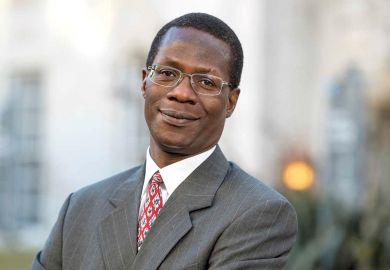This is a readable book suitable for anyone interested in business and current affairs. Gideon Haigh's intent, first and foremost, is dispelling the myth of the chief executive officer as the deus ex machina of the theatre that business has become - gradually, since the establishment of limited-liability stock companies, and then much more rapidly during the last few booms of the equity markets.
Second, he develops a critique on moral grounds of the compensation packages and, in particular, of the golden parachutes awarded to CEOs. His argument is founded not so much on an ethical discourse as on economic considerations such as the imperfection of the market for top executives, the statistical bias of the universe used to determine appropriate standards due to the inclusion of outliers and the flaws in the governance process.
Sadly, having convinced us about the shortcomings of the expectations of the role of the CEO and of the merit of the remuneration levels, he leaves us sitting on a pile of debris with a meagre architectural plan for how to rebuild from there. He merely concludes: "While scepticism is integral to a healthy corporate culture, cynicism is its greatest enemy - and for this the only remedies are honesty and humility." Well done, Mr Haigh. This may mark the start of a new brand of consultants: spiritual advisers to the board.
I was informed and well entertained by the author's empirical analysis of the myth of the CEO, based on part-biographies and anecdotes, as well as by his vivisection of the hypocritical argument about the need to pay globally competitive remuneration, but I believe that he misses the opportunity to insert his surgical knife into the cancer of misplaced expectations.
For instance, he misses the point that, whereas earlier redistributions in the history of labour relations were redistributions of income - be it for the benefit of blue-collar workers in the 1950s and 1960s or for the benefit of middle managers and technocrats in the 1970s and 1980s - the redistribution for the benefit of generalist CEOs since the 1990s is a redistribution of assets by way of dilution.
This has important consequences. For one, the checks and balances provided by the boards to the two earlier movements were more effective than the control exercised by boards and shareholders over a seemingly painless dilution.
Furthermore, Haigh fails to point out that when the answer is consistently wrong, as indicated by the high burn-out rate of CEOs, perhaps it is the question itself that is flawed. Perhaps the expectation that people who have lost whatever technical expertise they had in the fast climb to the top and who are often chosen for personal and presentational skills in preference to in-depth industry and client knowledge should be equipped to run today's mega-corporations, is an act of misplaced faith rather than a rational belief.
What this may mean, then, is that a modern corporation is better steered by collegiate leadership based on a primus inter pares framework than by a CEO who must show supernatural leadership qualities contained only by an alignment of interest with shareholders, which tries, but fails, to bridge the agency conflict between hired managers and owners, and which dresses up aggressiveness and chutzpah as some superior form of entrepreneurialism.
Haigh comes close to facing the issue, but then he skirts around it.
Even so, this is a small book worth reading and a debate worth reflecting upon.
Rudi Bogni is a former investment and private banker.
Bad Company: The Strange Cult of the CEO
Author - Gideon Haigh
Publisher - Aurum
Pages - 154
Price - £6.99
ISBN - 1 85410 969 3
Register to continue
Why register?
- Registration is free and only takes a moment
- Once registered, you can read 3 articles a month
- Sign up for our newsletter
Subscribe
Or subscribe for unlimited access to:
- Unlimited access to news, views, insights & reviews
- Digital editions
- Digital access to THE’s university and college rankings analysis
Already registered or a current subscriber?



